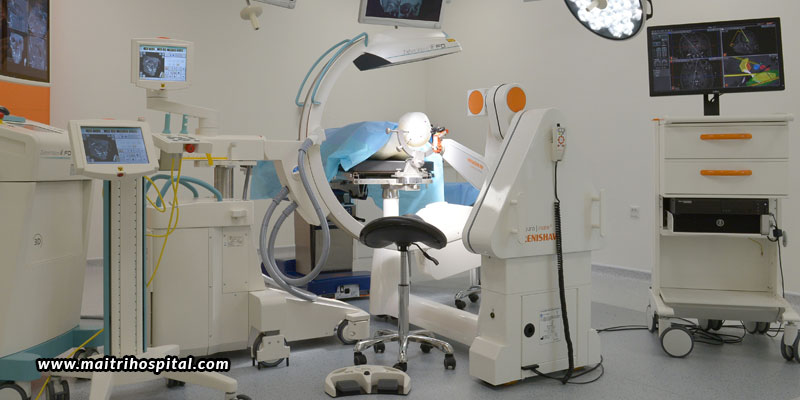
Neurosurgeons – All That You Would Want To Know About Them
Neurosurgery is a very exciting and intriguing topic of thought for a common man. Wondering how the brain and nerves in our body work together so beautifully and collaboratively, yet individually performing their own particular tasks, is in itself so intriguing, that we all would want to know how doctors tackle the problems of our neurological system. Understanding your anxiety to explore about the field of neurosurgery, we have come up with this blog that answers all the questions you may have in mind regarding neurosurgery and neurosurgeons.
What is neurosurgery? And who is a neurosurgeon?
Neurosurgery in Kota is the medical specialty field that is concerned with the prevention, diagnosis, and surgical treatment of disorders of the nervous system, which comprises of the brain, spinal cord, peripheral nerves, and extra-cranial cerebrovascular system. And, the medical practitioner who practices such actions is a neurosurgeon.
How does one become a neurosurgeon?
To become a neurosurgeon, first one has to complete an accredited undergraduate program in science, after which he is required to attend at least four years of medical school. Next, there is one year residency program in general surgery that is to be completed, after which a 5-7 years of neurosurgery residency program is to be taken up. Thus, on an average, it takes somewhere around 13-15 years for an individual to become a neurosurgeon! In addition, many neurosurgeons also complete a fellowship after residency to specialize in a particular field of neurosurgery. Some of the common sub-specialties include cerebrovascular and skull base surgery, neuro-trauma and neurological critical care, neuro-oncology and interventional neuro-radiology, and pediatric neurosurgery. Now, can you imagine the amount of time, efforts, and capital that is put in to become such a professional!?
What disorders are neurolosurgeons specialized to treat?
As neurosurgeons have complete knowledge about the entire nervous system, they can treat all the disorders related to it. Some of the most common disorders include acoustic neuroma, astrocytoma, brain cyst, chordoma, brain tumours, nerve sheath tumours, neurilemmomas, neurofibroma, oligodendroglioma, pineal tumours, pituitary tumours, primary central nervous system lymphoma, sports injuries, syringomyelia, headaches, trigeminal neuralgia, and spine tumours and injuries.
How do neurosurgeons treat such disorders?
Neurosurgeons have access to a number of treatments, out of which they determine on the best treatment for a particular patient, depending upon the condition and the diagnosis that they do. There are a number of diagnostic tests that can be done to confirm a disorder. Some of the most common neurological diagnostic tests include carotid duplex, cerebral angiography, CT scan, discography, doppler ultrasound, EEG, EMG, intrathecal contrast-enhanced CT scan, lumbar puncture, MRI, myelogram, nerve conduction study, OPG, PET scan, selective nerve root block, and SSEP test. Once these tests determine the condition of the patient, the treatment is initiated. Just like the availability of a number of tests, neurosurgeons also have a number of treatment options in hand. Some of the most common procedures include ACDF, burr hole, chiari decompression, craniotomy, ETV, epilepsy surgery, laminectomy, spinal fusion, ventriculostomy, and shunts.
When should you need to visit a neurosurgeon?
If you experience migraines, tremors, seizures, chronic headaches, vision problems, back pain, neck pain, back injury, or head injury, you may need to visit a neurosurgeon. Maitri Hospital is the best place you can visit in such situations because the hospital is a centre of excellence for neurosurgery in Kota, where there is a team of experienced, skilled, and trained doctors, who have till date successfully treated innumerous patients suffering from any and all kinds of neurological conditions.


